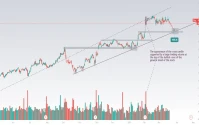Trump's "No Tax on Overtime": A Glitch in the Matrix or a Glimpse of Tomorrow?
Okay, buckle up, everyone, because we need to talk about Trump's "One Big Beautiful Bill" – specifically, the "no tax on overtime" provision that's causing a bit of a stir. Now, before you roll your eyes and say, "Oh great, more politics," hear me out. This isn't about red versus blue; it’s about a fundamental shift in how we think about work, value, and the future of compensation. And honestly, it's the kind of thing that makes me excited to be alive right now.
So, the deal is this: Trump signed this bill back in July, and it included a provision to eliminate federal income tax on overtime payments, up to a certain limit. The idea? Reward hard work, boost the economy, all that jazz. Sounds good on paper, right? But then, a few states – Washington, New York, Illinois, Colorado – started pushing back, passing their own laws to essentially nullify the federal tax break within their borders. Why? Budget concerns, mostly. They're worried about losing revenue. Some states axe Trump's federal tax benefits. What is Illinois excluding?
It's like this: Imagine you're promised a brand-new car, but then the dealership tells you, "Yeah, but we're gonna have to take away your heated seats and your fancy rims to make it happen." You're still getting a car, but it's not quite the dream you were sold.
And let's be clear, this isn't a full tax exemption; it’s a deduction. It means only the premium portion of your overtime pay – that extra bump you get for working those extra hours – is eligible for the tax break. And even then, there are some caveats. Certain types of overtime might not qualify. It's complicated, I know. The IRS even acknowledged the confusion, offering employers penalty relief for 2025 because, frankly, nobody really knows how to implement this thing yet. IRS Will Not Impose Penalties Based on Reporting of “No Tax on Tips” and “No Tax on Overtime” for 2025
The Pushback: A Sign of Things to Come?
Now, here's where it gets interesting. The fact that states are actively pushing back against a federal tax cut tells us something important: the old ways of thinking about taxation and compensation are starting to crack. These states are essentially saying, "We need that money more than we need to give people a tax break on overtime." Which, you know, is a valid argument. But it also highlights a growing tension between the federal government and the states, a tension that's only going to intensify as we move into a more decentralized, digitally-driven economy.

But here's the thing that really grabs my attention. This whole situation highlights a bigger question: what if we could fundamentally rethink how we value and compensate work? What if, instead of just tweaking the tax code, we could create a system that truly rewards productivity, innovation, and contribution?
Think about it. We're on the cusp of a massive technological revolution. AI, automation, robotics – these things are going to transform the way we work, the way we live, and the way we create value. And as these technologies mature, we're going to need new ways to incentivize people, to motivate them, to ensure that everyone benefits from the coming wave of prosperity.
What if, instead of taxing overtime, we focused on incentivizing upskilling, lifelong learning, and entrepreneurialism? What if we created a system where people were rewarded not just for the hours they put in, but for the value they create? What if we could unleash the full potential of the human spirit, empowering people to pursue their passions, to innovate, to build a better future for themselves and for the world?
I saw someone on Reddit say, "This is just a band-aid on a broken system. We need to fundamentally rethink how we value labor." And honestly, I couldn't agree more. This "no tax on overtime" thing might be a bit of a mess right now, but it's also a glimpse of what's possible. It's a sign that we're starting to question the old assumptions, to challenge the status quo, to imagine a better way forward.
And that, my friends, is something to be excited about. When I first read about the states pushing back, I was initially a little bummed out. But then I realized: this is a conversation starter. It’s an opportunity to think bigger, to dream bolder, to create a future where everyone has the chance to thrive.










